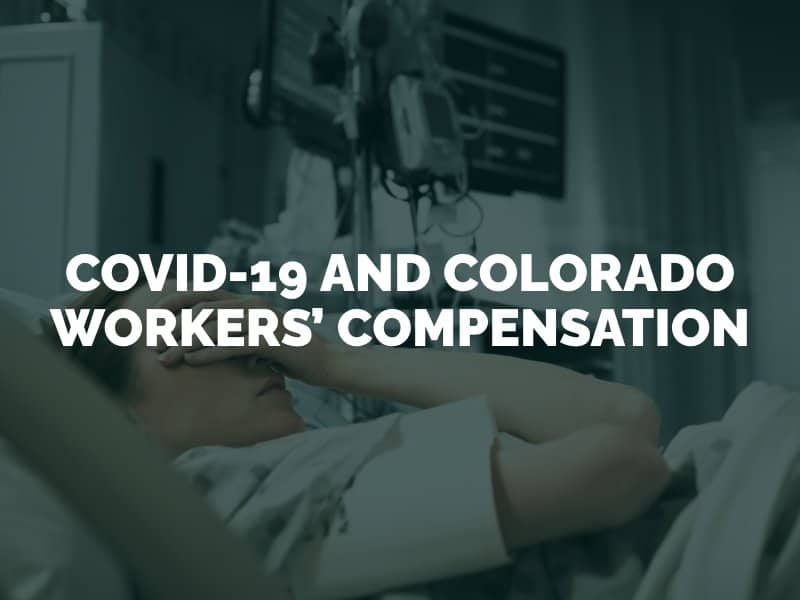As the COVID-19/coronavirus pandemic continues to ravage the country with new variants and spikes in the number of positive cases, more workers are wondering if they qualify for workers’ compensation benefits for contracting the virus because of their jobs. Workers’ comp coverage for COVID-19 changes from state to state, as well as based on the industry and occupation. Here is what you need to know about workers’ compensation insurance and COVID-19 in Colorado in 2022.

Yes, in certain circumstances. Typically, workers’ compensation insurance does not cover illnesses such as the cold or flu, as they are community-spread illnesses that are difficult to trace directly back to the workplace. There are exceptions, however, for the COVID-19 pandemic. The coronavirus created a unique circumstance in which many jobs that previously were not considered illness risks are now dangerous for workers, such as grocery stores and restaurants. More hazardous working conditions in light of the virus have led to many states changing their laws to allow workers’ comp to cover a COVID-19 infection.
In Colorado, however, there have been no such changes. The only bill that was put forth regarding COVID-19 and workers’ compensation was SB20-216, which failed to get enough sponsors to pass. This bill would have allowed essential workers – such as health care workers – who worked outside of the home to file workers’ compensation claims if they contracted COVID-19 and the contraction was presumed to have arisen out of the course of employment. Since the bill failed, there is currently no such allowance in Colorado’s workers’ compensation law.
This does not mean that there is no chance of collecting workers’ comp benefits for testing positive or being diagnosed with COVID-19 because of your job, however. If the illness resulted directly from your employment or the conditions under which you performed your job, it will technically fulfill the definition of an occupational disease under Section 8-40-201 of the Colorado Workers’ Compensation Act. Thus, COVID-19 could potentially make you eligible for workers’ compensation, in the right circumstances.
Talk to your employer about the possibility of filing a workers’ compensation claim if you contracted COVID-19 and have evidence that connects it directly to your place of employment. It is generally only worthwhile to file this type of claim if your illness took you out of work or resulted in medical bills.
You must follow all of the legal requirements for filing a workers’ comp claim in Colorado, including submitting a written notice of your illness to your employer within four days of the diagnosis and visiting a doctor that is on your employer’s approved list for care. If the insurance company denies your claim, consult with an attorney about a possible appeal.
Possibly. The workers’ compensation program in Colorado does not distinguish between work-from-home employees and in-office employees. Both have the same eligibility for workers’ comp benefits, as long as they are employees and not independent contractors. It may be more difficult to qualify for workers’ comp as a remote worker, however, as you may not be able to prove that you contracted COVID-19 in the course of your employment and not when you were off-duty.
No. It is against the law for your employer to retaliate against you for filing a workers’ compensation claim for COVID-19 by terminating your employment. It is permissible for your employer to terminate you for a lawful reason, however, such as the company’s financial strain or restructuring. If you suspect that you lost your job because you filed a workers’ comp claim, contact an attorney about a potential wrongful termination lawsuit.
Navigating a workers’ comp claim related to COVID-19 in Colorado is difficult. Work with a Denver workers’ comp lawyer at Fang Law Firm for assistance with this type of case.